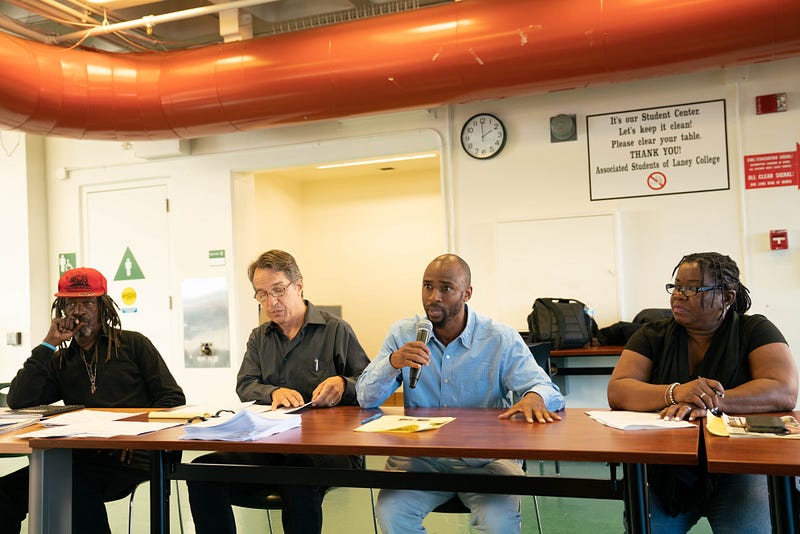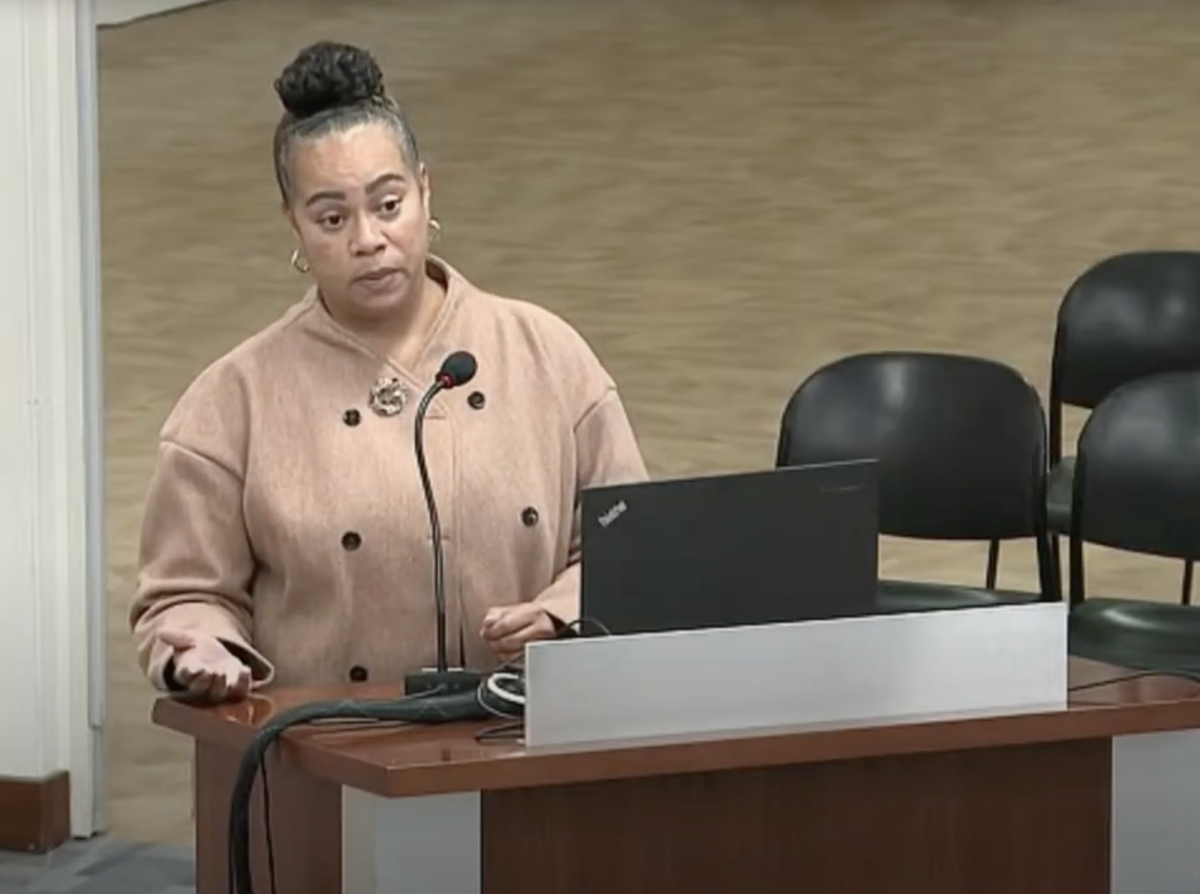Students, faculty, and citizens show support for the Oakland’s dispossessed
Michelle Snider, Editor-in-Chief

“There’s only one place in America anybody is guaranteed a roof over their head, and that’s in prison,” said Oakland community leader John Jones III when he spoke at the new Poor People’s Campaign teach-in Oct. 30 at the Student Center.
A myriad of entangled issues became exposed behind the problems of housing insecurity at the event, which featured a variety of speakers addressing the 50 or so students and faculty in attendance.
Many of the speakers, such as Jones, have experienced living through underlying issues that cause housing insecurities, such as navigating society after being released from prison or attending school while working several jobs while still not having enough money for rent.
The new Poor People’s Campaign aims to tackle one social problem at a time using teach-ins and local community organizing. Their goals are deeply rooted in the original philosophy behind Dr. Martin Luther King, Jr’s, plans for a Poor People’s Campaign that failed to become a reality after he was assassinated on April 4, 1968.
This group consists of faculty, students, staff and community members who meet every Tuesday from 4–6 p.m in T-450.
Keynote speaker and San Jose anti-poverty leader Sandy Perry said there are an estimated 7,000 homeless people, but that number may not represent the entirety of the issue.
“We don’t know the number of people couch-surfing. Many people are too ashamed and embarrassed to talk about it,” he said. “[7,000] is just the official number, and, we believe, not the full number.”
According to one of the new Poor People’s Campaign organizers, Ethel Long-Scott, 14 percent of the Laney student population is homeless.
“We have been miseducated to believe that we’re the problem as opposed to it being the system,” she said. “The problem is, we’re on the same conveyor belt. If we have solutions that only solve one part of the problem, we aren’t really solving the problem.”
The impact of homelessness can be difficult to understand for the people who have not experienced it, but when stories are shared it gives others a chance to sympathize with those who have struggled to find housing.
Jones was paroled six years ago, he said. Despite having a license to become an aircraft mechanic, he was homeless and unemployed for 18 months. He spent an entire year in a one-room shack with 10 people and no running water.
He also said some women are being sexually assaulted, and that some are sex-trafficked when they become homeless. He added that rats are biting people who live in encampments.
“If someone said I’m going to charge you to breathe air,” he said, “what would be your reaction? We already buy water. Why does rent exist? Everyone has a right to shelter.” He suggested the simple solution of public-owned housing where no one pays rent.
Another roundtable speaker at the teach-in, Andrea Slater, is a political science instructor at Laney. She explained the importance of local politics, and advised following the money to understand the real motivations and intentions of propositions and politicians.
“If your city is only giving you the minimum rights that the state allows, you have virtually no protection,” Slater said. “We are the system. We are not outside.”
Laney English professor Roger Porter started the Homeless Student Support group. He said his inspiration to start the support group happened when, every semester, some students say they are living out of their cars and are housing-insecure.
“As the black population in Oakland has been cut in half,” he said, “the homeless population is upwards of 70 percent.”
Recently retired Laney instructor Peter Brown is now a sculpture student who also helps organize with the new Poor People’s Campaign committee. He was part of the “More Cuts to Social Programs Panel” and said that everyone should think of themselves as teachers. All it takes to be a good teacher is to be a good student who studies their surroundings.
“When we understand the mechanisms at work in a process,” he said, “then we aren’t victims of that process anymore — we’re participants.”
The old working class is being pushed out for a new tech industry working class, Brown also noted. He said techies don’t own anything, and that they are the new working class that will be replaced with automation and artificial intelligence.
“We are being dispossessed,” he said. “Government is something we create to do what we can’t do by ourselves.”
This generation is a transformational one, he said, and nothing but a total change in the public system will do.
“Talk about the force that you are and can be,” he said. “You’re homeless? Talk to your friends about it. You’re struggling? Talk to your friends about it. We are the force to make a new world.”

























